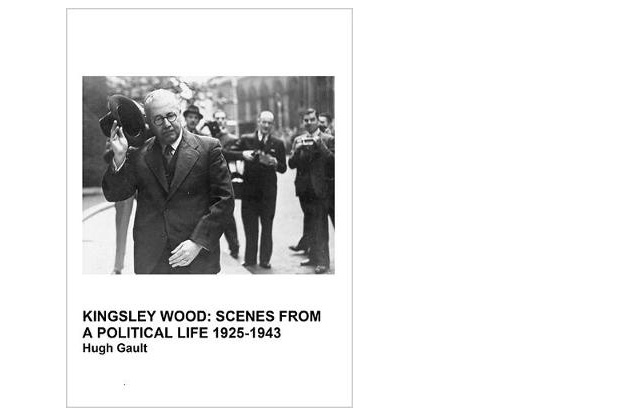Kingsley Wood: Scenes from a Political Life 1925-1943
Book review

Kingsley Wood: Scenes from a Political Life 1925-1943, Hugh Gault, Gretton Books, 2017, 564p, £25-00. ISBN 978-0-9562041-9-6
It is a truism that we only know what we know, a statement as appropriate for professional historians as everyone else. Lecturing on Neville Chamberlain’s social reforms or the role of Winston Churchill, how could I have missed the career of Sir Kingsley Wood?
Hugh Gault has remedied this omission on my part with his meticulous and revealing study of Wood’s ministerial career. With the exception of the Labour Government 1929-31, Wood was continuously in high office from 1925 until his sudden death in 1943. He was a junior health minister alongside Neville Chamberlain, Postmaster-General 1931-35, Health Minister 1935-38, Air Minister 1938-40 and then Chancellor of the Exchequer.
Gault’s research reveals that Wood was directly involved in Neville Chamberlain’s social and health reforms; that he was a very energetic and very positive Postmaster-General involved in imaginative ways to promote and expand the Post Office’s post, telegraph and telephone business; that he was a very sensitive and thoughtful Health Minister, with special sympathies for services to women and children; and that it was to him that the preparedness of the RAF in 1940 can be attributed.
When he became Chancellor of the Exchequer in 1940, people were surprised because he did not have any prior experience in a governmental finance role but he took good advice and it is to him that we owe the immediacy and effectiveness of PAYE as part of the national finances. It is also apparent that, in that war-time period, Wood was actively involved in leading the discussions on how the country would cope with the challenges of the post-war world. His unexpected death was widely mourned because his integrity was highly regarded across the political spectrum.
In his conclusion Hugh Gault does readily recognise that ‘Wood is rarely remembered today’. It is his view that Wood has suffered the fate of being ‘neither bad enough nor so exceptional that he would be readily recalled’. Without serving as Prime Minister or even party leader, very prominent politicians can easily be forgotten within the wider political perspective.
This is a fascinating and very carefully researched tribute to a very experienced and senior politician.

